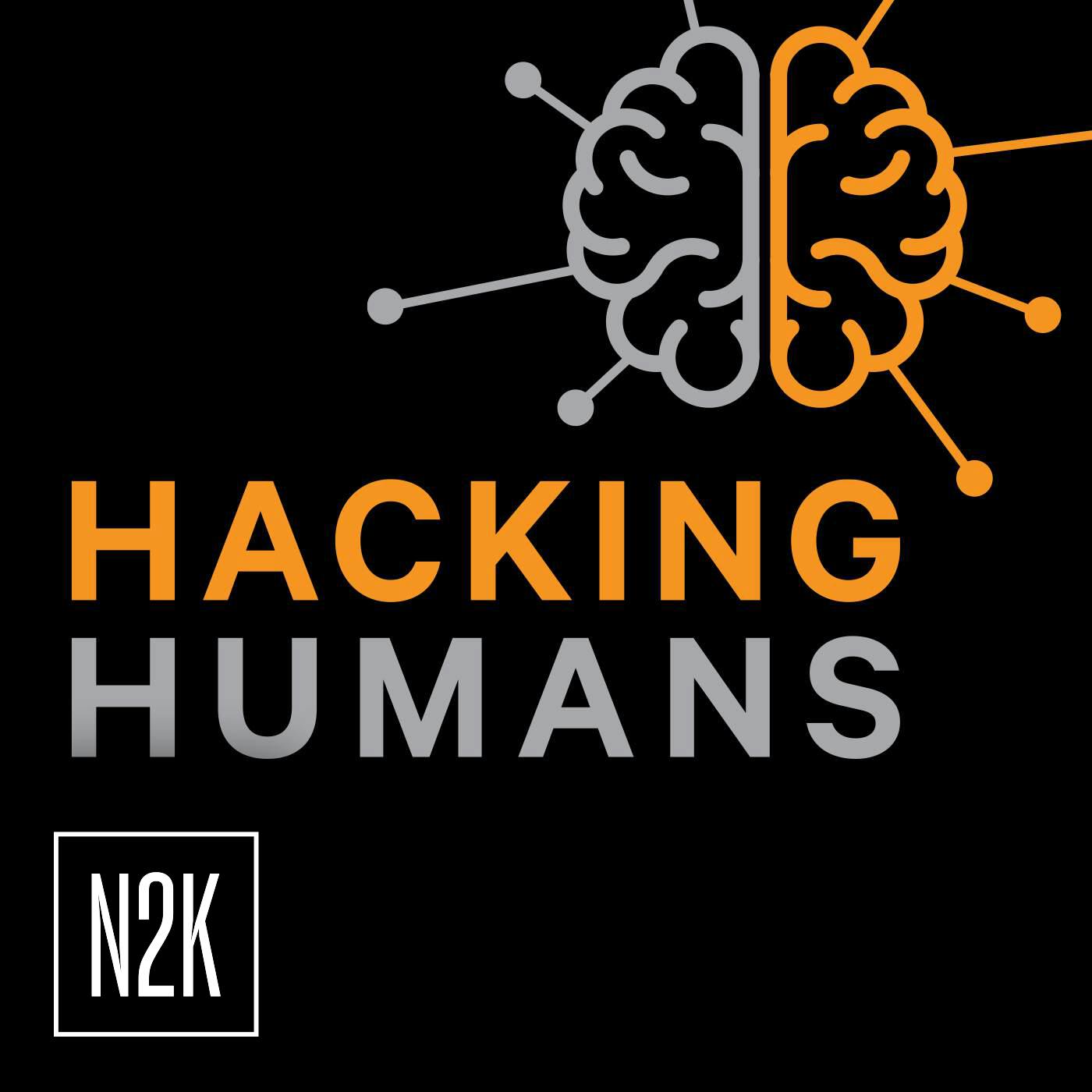

Hacking Humans
N2K Networks
Deception, influence, and social engineering in the world of cyber crime.
Episodes
Mentioned books

Jan 26, 2021 • 6min
unified extensible firmware interface (UEFI) (noun) [Word Notes]
An extension of the traditional Basic Input/Output System or BIOS that, during the boot process, facilitates the communication between the computer’s firmware and the computer’s operating system.

Jan 21, 2021 • 34min
Targeted phishing campaigns and lottery scams abound.
Guest Arjun Sambamoorthy of Armorblox talks with Dave about five targeted phishing campaigns that weaponize various Google services during their attack flow, Joe's story is about the MegaMillions jackpot that is approaching epic proportions and attracting the attention of scammers, Dave's story comes from a listener over on the Grumpy Old Geeks podcast about a Venmo incident, and our Catch of the Day comes from Joe's son who received an email from the FBI.Links to stories:
Advisory: Beware of Scams as Jackpot Grows
Lottery Scams: Some scammers falsely use Mega Millions name
Have a Catch of the Day you'd like to share? Email it to us at hackinghumans@thecyberwire.com or hit us up on Twitter.

Jan 19, 2021 • 5min
Daemon (noun) [Word Notes]
An operating system program running in the background designed to perform a specific task when certain conditions or events occur.

Jan 14, 2021 • 39min
As B2C interactions shift online, call centers become new fraud vector.
Guest Umesh Sachdev of Uniphore talks with Dave about how call centers are becoming the new fraud vector, Dave's story involves an email that has a Trump scandal .jar file attached that's really a RAT, Joe has a story about hackers spoofing a victim's phone number making emergency calls where the police respond to the victim's home with force, he also talks about credential stuffing for swatting a video doorbell, and our Catch of the Day comes from a listener Christian who received an email with a lazy trunk box scam.Links to stories:
Hackers Using Fake Trump's Scandal Video to Spread QNode Malware
FBI Warn Hackers are Using Hijacked Home Security Devices for ‘Swatting’
Have a Catch of the Day you'd like to share? Email it to us at hackinghumans@thecyberwire.com or hit us up on Twitter.

Jan 12, 2021 • 5min
greyware (noun) [Word Notes]
Also known as spyware and adware, it is a software category where developers design the application neither to cause explicit harm nor to accomplish some conventional legitimate purpose, but when run, usually annoys the user and often performs actions that the developer did not disclose, and that the user regards as undesirable.

Jan 7, 2021 • 36min
Combating growing online financial fraud.
Dave switches gears and shares a story from the National Law Review with a social engineering spin to it about a theft exclusion in a title company's errors and omissions policy, Joe shares a story from Facebook taking action against hacking groups, The Catch of the Day comes Joe himself with a connection request he received on LinkedIn, and later in the show, Dave's conversation with Carey O’Connor Kolaja from AU10TIX on fraud in the financial services and payment industry, and how organizations are using emerging technical solutions to help combat it.Links to stories:
Engineering Coverage for Social Engineering Schemes in Light of New Jersey Federal Court Opinion Finding No Errors and Omissions Coverage for Email Scam
Taking Action Against Hackers in Bangladesh and Vietnam
Have a Catch of the Day you'd like to share? Email it to us at hackinghumans@thecyberwire.com or hit us up on Twitter.

Jan 5, 2021 • 5min
fuzzing (noun) [Word Notes]
An automatic software bug and vulnerability discovery technique that input's invalid, unexpected and/or random data or fuzz into a program and then monitors the program's reaction to it.

Jan 5, 2021 • 5min
Unix (noun) [Word Notes]
A family of multitasking, multi-user computer operating systems that derive from the original Unix system built by Ken Thompson and Dennis Ritchie in the 1960s.

Dec 31, 2020 • 39min
Encore: Don't go looking for morality here. [Hacking Humans]
Dave has a story of an investment scam featuring celebrities, Joe warns of scams surrounding the Coronavirus, the Catch of the Day features Joe's son-in-law's adventure with thousands of bot infiltrations, and later in the show, Dave's extended interview with magicians and entertainers Penn and Teller at RSAC 2020 in San Francisco.Links to stories: Revealed: fake 'traders' allegedly prey on victims in global investment scam Coronavirus: Scammers follow the headlinesHave a Catch of the Day you'd like to share? Email it to us at hackinghumans@thecyberwire.com or hit us up on Twitter.

Dec 29, 2020 • 6min
deep packet inspection (DPI) (noun) [Word Notes]
A network monitoring and filtering technique that examines both the header information and the payload of every packet traversing a network access point.


